About Lake Whatcom Residential Treatment Center
Welcome to Lake Whatcom Residential Treatment Center, where we offer a variety of services designed to help our patients heal and recover from addiction and mental illness. Our dual diagnosis program is designed to treat both conditions simultaneously, while our adult and elderly rehab programs provide specialized care for these groups. We also offer LGBTQ-friendly rehab services and cognitive behavioral therapy, as well as experiential and family therapies. whichever program you choose, you can be assured that you will receive high-quality, individualized care from our experienced and compassionate staff. Thank you for choosing Lake Whatcom Residential Treatment Center.
Addiction Treatment Programs
Dual Diagnosis
During dual diagnosis treatment in Washington, you’ll receive integrated care for your mental health and substance use concerns, helping you establish long-term recovery.Part of treatment will include managing your mental health symptoms so you aren’t tempted to use substances to self-medicate. This can be done without counseling and medication.
Adult Program
When people join an adult program in Washington, they learn about topics such as employment and raising a family while receiving treatment. These treatment programs offer detox, inpatient treatment, and outpatient care tailored to the specific needs and challenges of adults.
Senior Rehab
Senior rehab in Washington offers specialized addiction treatment for older adults that addresses their unique challenges. These treatment programs offer detox, inpatient treatment, and outpatient care tailored to the unique needs and challenges of older adults, such as chronic pain, mental health concerns, and more.
LGBTQ Friendly Rehab
If you’re looking for a safe space to work on your recovery as an LGBTQ+ person, consider finding an LGBTQ+ friendly rehab in Washington. Members of the LGBTQ+ community have often experienced trauma, rejection, and even abuse. These concerns are addressed along with typical evidence-based detox, inpatient treatment, and outpatient care.
Insurance Coverage
Medicaid
There are many ways to pay for rehab in Washington, including using Medicaid if you qualify. You can find treatment centers that accept Medicaid offering multiple levels of care, including detox, inpatient, and outpatient. You may pay little or nothing out-of-pocket.
Private insurance
How do you pay for rehab in Washington? A good option is private insurance. Be sure to contact your insurer to get coverage details, including what centers are in-network with your plan and what out-of-pocket costs you may be responsible for.
Self-pay options
In Washington, you can pay for rehab in many ways, including self-pay. With self-pay, also known as private pay, you write a check, use a medical loan, or electronically transfer money to the center. Check on the payment structure, which may vary depending on the level of care.
Financial aid
Trying to see if you qualify for financial aid programs can be a great way to pay for rehab in Washington. Getting a scholarship or grant can help you pay for any level of treatment, from detox to inpatient to outpatient care.
Medicare
How do you pay for rehab in Washington? If you have Medicare, consider using it to pay for some or all of the costs of treatment. Medicare plans may vary, so be sure to find out coverage details and what copayments or deductibles you might be responsible for.
Levels of Care
- 1
Inpatient Rehab
If you struggle with addiction in Washington, inpatient care is one option for rehab. You’ll live full-time at the facility and focus fully on recovery. Building a new life for yourself is challenging, and the focused, uninterrupted treatment you receive during inpatient care can help you lay that foundation.
- 2
Outpatient Rehab
During outpatient treatment in Washington, each client attends multiple hours of care per week while living independently outside of treatment. Some of the elements of outpatient treatment include individual and group counseling, skill-building, relapse prevention, and help with essentials like employment and housing.
Therapies
Cognitive Behavior Therapy
Not everything we think is true or helpful. Cognitive behavioral therapy in Washington teaches you to challenge distorted thinking so you can see things more clearly and choose healthier responses. Learning which thought disortions you are most susceptible to can help you challenge unhelpful thoughts, create better interpretations of situations, and choose healthier responses.
Experiential Therapy
In Washington, experiential therapy helps you express your emotions in non-traditional ways. This makes it much easier to reach long-term recovery. During treatment, you may take part in art projects, musical expression, or physical challenges like an obstacle course. These allow you to process emotions in a non-traditional way.
Family Therapy
During family therapy in Washington, clients and their loved ones can address dysfunctional relationships, resentments, and conflicts in order to create healthier relationships that support the client’s recovery. Family therapy can mean addressing uncomfortable and challenging issues, but having a professional therapist facilitating the sessions makes it easier for everyone to share honestly and improve their relationships.
Group Therapy
During group therapy in Washington, each client has a chance to share their unique experiences and feelings about the discussion topic. This creates accountability and support. Some of the topics covered in group therapy include overcoming shame and guilt, improving communication, developing healthy coping skills, and building a support network.
Individual Therapy
You’re not alone as you work through addiction in Washington. Individual therapy gives you a professional who’s on your side to help you build a new life. Individual therapy sessions generally last 60 minutes and may include discussing a specific issue, education about specific topics, or developing life skills.
Trauma Therapy
During trauma-informed therapy in Washington, you’ll be given the tools you need to manage your emotions and understand what happened in a healthier way. Trauma-informed therapy is a normal part of evidence-based treatment programs and may be a part of inpatient treatment, outpatient care, or both. Methods include sharing of experiences, peer support, mindfulness practices, and more.
Location
Contact Lake Whatcom Residential Treatment Center
Top Drug Rehab Centers in Washington
-
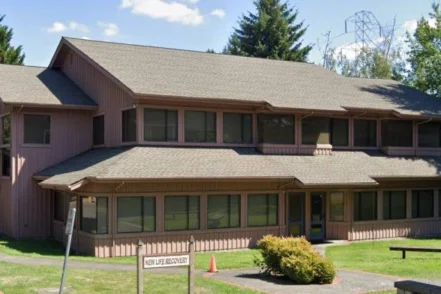 Washington
WashingtonNew Life Recovery Solutions Bellevue
12330 Ne 8th Street, Suite 100 Bellevue, Washington 98005
-
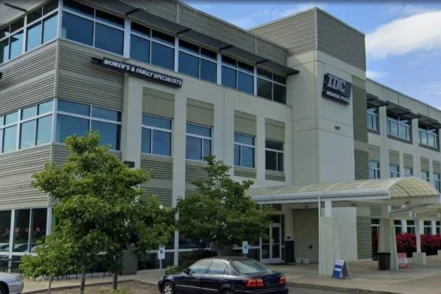 Washington
WashingtonEvergreen Treatment Services Renton
1412 SW 43rd Street, Suite 140 Renton, Washington 98057
-
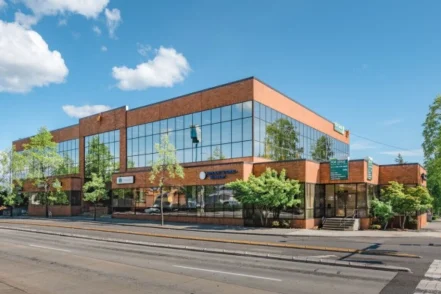 Washington
WashingtonThe Evergreen at Northpoint Northgate
2111 North Northgate Way, Suite 101 Seattle, Washington 98133
-
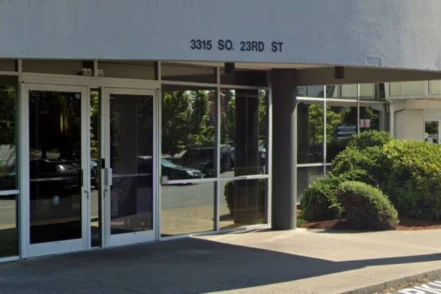 Washington
WashingtonLakeside Milam Recovery Centers Outpatient Tacoma
3315 South 23Rd Street, Suite 102 Tacoma, Washington 98405
-
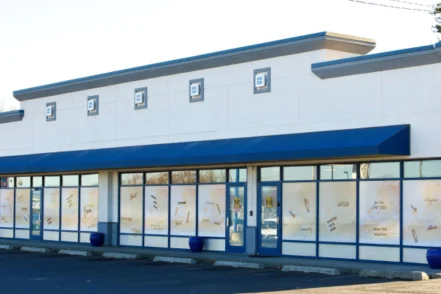 Washington
WashingtonRoyal Life Centers at Spokane Heights
524 East Francis Avenue Spokane, Washington 99208
-
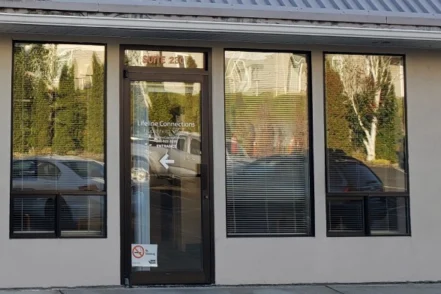 Washington
WashingtonLifeline Connections Bellingham Office
4120 Meridian St, Suite 220 Bellingham, Washington 98226
-
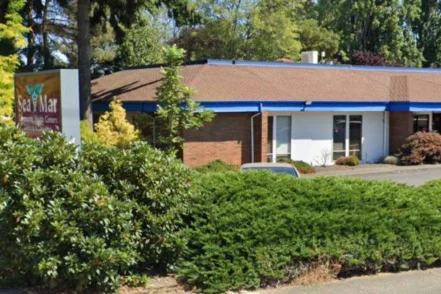 Washington
WashingtonSea Mar Community Health Centers Tacoma
2121 South 19th Street Tacoma, Washington 98405
-
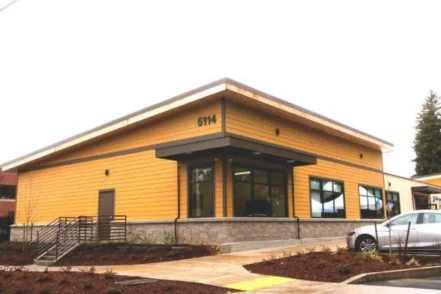 Washington
WashingtonThe Recovery Village Ridgefield Detox Center
5114 NE 94th Ave Vancouver, Washington 98662
-
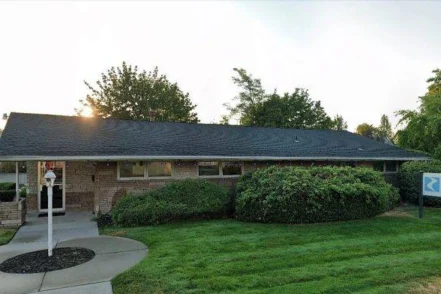 Washington
WashingtonRiverside Recovery Center Spokane
3710 North Monroe Street Spokane, Washington 99205
-
 Washington
WashingtonFree by the Sea Ocean Park
25517 Park Avenue Ocean Park, Washington 98640
-
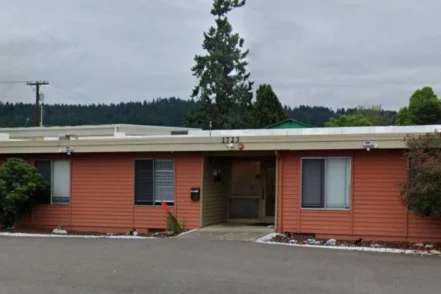 Washington
WashingtonRoyal Life Centers at Puget Sound
1723 Bonney Avenue Sumner, Washington 98390
-
 Washington
WashingtonIntercept Associates
30620 Pacific Highway South, Suite 107 Federal Way, Washington 98003
-
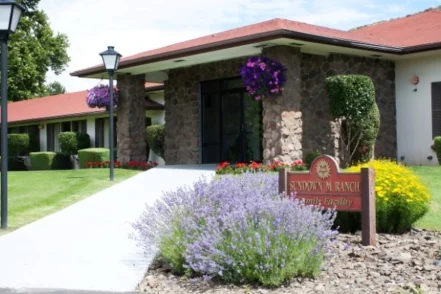 Washington
WashingtonSundown M Ranch
2280 State Route 821 Yakima, Washington 98901
-
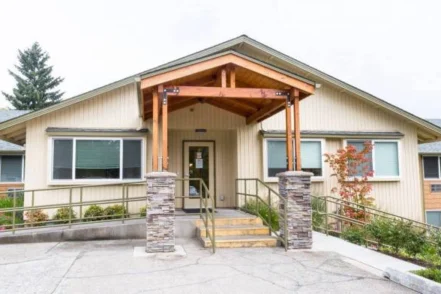 Washington
WashingtonThe Recovery Village Ridgefield South Hillhurst Road
888 South Hillhurst Road Ridgefield, Washington 98642
-
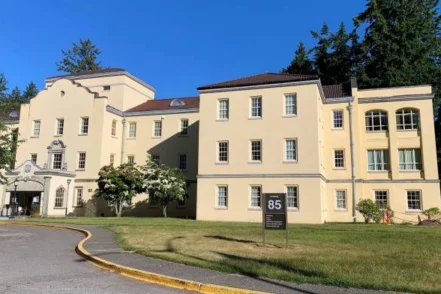 Washington
WashingtonVA Puget Sound Health Care System American Lake Division
9600 Veterans Drive Tacoma, Washington 98493